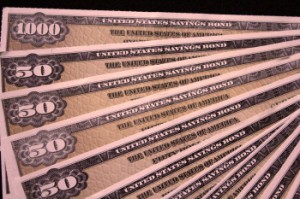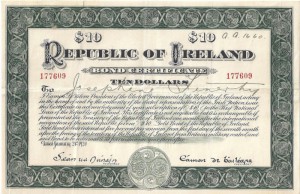As the Government continues to flood the economy with new money via QE1, QE2, Operation Twist and now Twist2, many investors are fearing a massive inflation may be just around the corner. And so they are looking for a sfe haven to protect their investments from the deluge they see coming. Therefore they are turning to Treasury Inflation Protected Securities, or "TIPS". TIPS are considered an extremely low-risk investment as they have Government backing, are protected from the ravages of inflation and are less volatile than bonds and safer than stocks. How Treasury Inflation Protected Securities (TIPS) Protect Against inflation Over time even small levels of inflation can make a big … [Read more...]
Inflation-Busting Tips To Help You Get The Most from Your Money
Rising inflation has been a major concern over the past few years. The real value of your money can be quickly eroded if the interest on your accounts fails to keep pace with the rising cost of goods and services. So what can you do about it? Here are some Inflation-Busting Tips to help with your investments: Inflation "The Silent Thief" Price Inflation is the measure of the rising costs of goods and services across a period of time, also described as the “rising cost of living”. Sometimes described as ‘the silent thief’, savers are often left unaware of the effect that inflation is having on their savings. While you may not physically lose money as a result of rising inflation, the … [Read more...]
What are I bonds?
I- Bonds: A brief overview: In the current shaky economy, everyone is looking for safe and secure investments. Investors might have a chance at high rewards with stocks and corporate bonds, but there’s also a huge risk to putting money in either. The snowballing crises in Europe aren’t making foreign investments look any more tempting. Where can investors trust their finances if they want a solid risk free return on their investment? Well, for those of you who want to play it cool and safe with your investments, you might consider: I bonds. What are I-Bonds? First of all, I-Bonds are officially called Series I Savings Bonds. According to the U.S. Department of Treasury, I bonds … [Read more...]
How Inflation Affects Your Savings- Reduced Buying Power
Inflation and Savings When the average person thinks about inflation, the first thing that comes to mind an increase in the Cost of Living i.e. that items they purchase regularly keep getting more and more expensive. While this is true, an even greater concern regarding inflation is its impact on savings and financial planning. Inflation Hurts Savings Buying Power Inflation hurts consumer buying power, because increased costs mean spending more to purchase the same items. What you put into a savings account today, at current interest rates (which are approximately 1% APR at the time of this writing), will only buy half as much in 20 years as it does now if you figure the inflation … [Read more...]
What is the Fiscal Cliff and How is it Affecting the Economy
The fiscal cliff that is the current hot topic in the news is a combination of automatic spending cuts and tax hikes that are scheduled to go into effect at the end of 2012 and the beginning of 2013. The spending cuts were triggered when congress failed to reach a deficit reduction agreement during last years debt ceiling debate. The tax increases are also automatic because Congress failed to make the "Bush Tax Cuts" permanent opting instead for a more politically expedient temporary tax reduction. In other words, they "kicked the can down the road" and it landed at the end of 2012. Perhaps they were hoping the Mayans were right and the world would end before they had to deal with the … [Read more...]
Using Binary Options to Hedge against Inflation
Binary Options and Inflation The word “inflation” is one that has become a very familiar one in the vocabulary of traders and everyday people, especially since the global financial crisis of 2008. The reason why inflation strikes fear into the minds of people is that it is a phenomenon that reduces the purchasing power of individuals. Typically, salaries and wages do not increase commiserate with level of reduction of the purchasing power of the currency, and fixed investment vehicles such as the money market do not provide enough earning power as to cushion the effects of inflation. That is why it is important that people are made aware of other forms of investments that can overcome … [Read more...]
Stocks Typically Fall Faster Than They Rise
Online stock market investing is a risky prospect these days. For a limited time you can download a free copy of the May issue of Elliott Wave Financial Forecast to help you decide how you should proceed for the rest of 2012 and beyond ~editor The Smell of Fear: Detecting the Dow's Scent Stocks typically fall faster than they rise Rising stock prices vs. investor fear: When one is present, the other is usually absent. Yet the two were actually in each other's company around the time of the most recent high in the Dow Industrials (May 1): This week the Dow carried to a new recovery high without generating a corresponding new low in the VIX. This suggests a sudden hesitancy compared … [Read more...]
Impact of Inflation on Bonds Part 2
This page has moved. If you are not redirected shortly please click here. … [Read more...]
Impact of Inflation on Bonds Part 1
Impact of Inflation on Bonds Bonds are often considered a risk-free (or nearly risk-free) investment suitable for "widows and orphans". While they are generally safe, they have several weaknesses in the modern marketplace, inflation, rising interest rates and default risk. Before buying a bond, make sure you understand how bonds work and how inflation can have an effect on bonds. The Nature of Inflation Inflation is often described as the general rise of prices in the economy. However, the increase in prices is merely the effect, called "price inflation." Monetary inflation, which is the expansion of credit in the financial markets, is what often (but not always) drives price inflation. … [Read more...]
In the United States, The Belt-tightening Has Just Begun
The Day of American Austerity: What Will It Look Like? In the United States, the belt-tightening has just begun Since the start of the European sovereign debt debacle, the word "austerity" has been bandied about a lot. It wasn't an everyday word, and may send some people to the dictionary. Merriam-Webster defines "austerity" this way: enforced or extreme economy. But even knowing this definition might leave one wondering how "austerity measures" relate to Europe's debt crisis. The Associated Press (5/13) provided this overview: Austerity has been the main prescription across Europe for dealing with the continent's nearly 3-year-old debt crisis, brought on by too much government … [Read more...]






